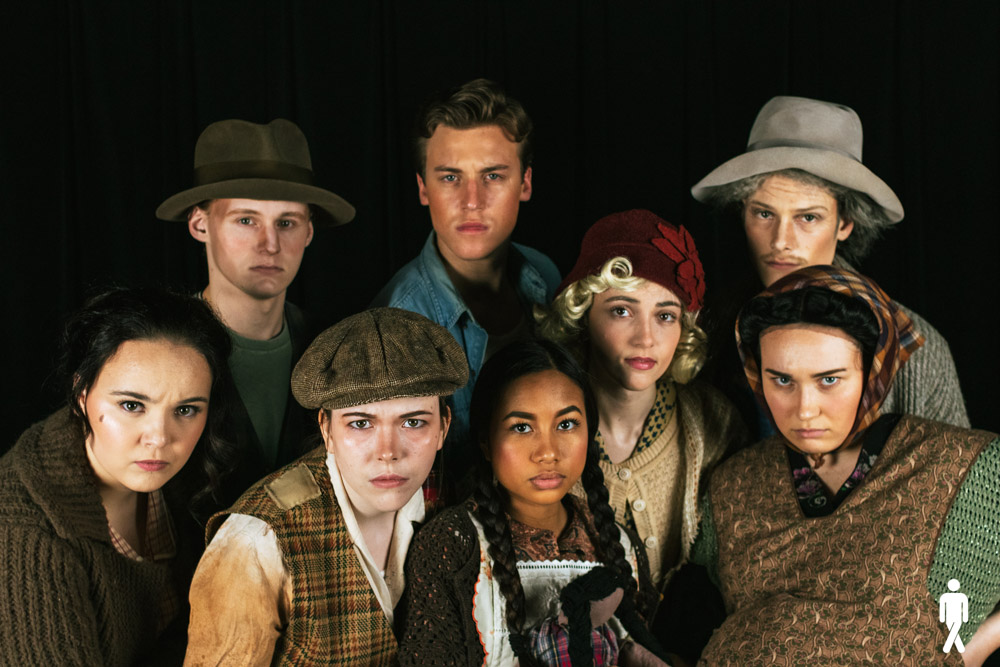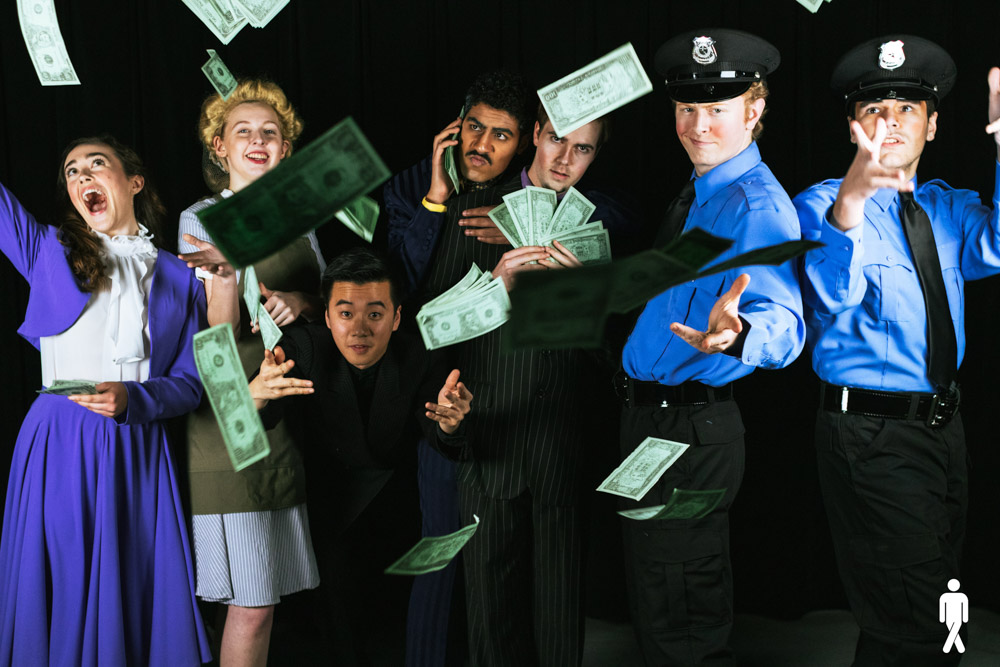Deeper than corruption of capitalism
Urinetown tackles bigger issues than pee
February 6, 2020

Ms. Pennywise (played by Jessica Sparks-Stuht) stands in front of Public Amenity Nine with her cash box, ready to take poor residents’ pocket change in exchange for their entry to the public restroom. Many barely have enough change to enter, but they are reminded that it is a privilege to pee, not a necessity.
This past week, the students of the Seattle Pacific University Theatre department performed their opening show of “Urinetown,” playing Jan. 30 through Feb. 8. All evening shows are at 7:30 p.m. with matinees on Feb. 1 and 8 at 1:00 p.m.
It follows Bobby Strong (played by Tate Busby) and his fellow community members as they fight back against the corporation Urine Good Company which charges people to use the restroom. Because of the town’s water shortage the lower class must wait for hours outside these public amenities waiting to pay to use the restroom.
But “Urinetown” is more than just a musical about peeing.
The cast expertly performs the witty and upbeat songs often with dance choreography while addressing well established social issues. On the surface, it seems this story is just about capitalism. Looking deeper, the actors bring out other themes like greed, misogyny, love, the depletion of environmental resources and, ultimately, the struggle between right and wrong.
Despite upbeat songs, the musical is not happy, as Officer Lockstock (Jordan Mielbrecht) often reminds the audience.
Long gone are the days of private restrooms and free public restrooms. This performance emphasizes the satirical take on capitalism the musical presents. Consumers are often meant to turn a blind eye to what companies really do behind the scenes.

In the words of Caldwell B. Caldwell (played by Austin Dodd), CEO of Urine Good Company, “Look the other way while we run this company the way we see fit.”
Caldwell started with a good cause by trying to conserve water, but greed eventually took over. Dodd personifies the faults in capitalism and his evil smile completes the greediness of the character. Even though Caldwell focuses only on money, the town would not have lasted this long without him.
The musical, however, is not just a commentary on life under an abusive capitalist regime, but it is also about the problems of daily life in this system.
Hope (played by Sydney Penticuff) is the ideal woman, sweet and docile and embodies what her father and the misogynists present in the musical think women should be. Penticuff lightens the mood of the play, presenting a naive demeanor. She believes in love and populism and wants the townspeople to use the bathrooms as often as they want, free of charge.
Caldwell is too greedy and Hope is too giving. The townspeople want freedom to use their resources, but there is always a price to pay.
At surface level, “Urinetown” seems like a satirical prod at big issues like capitalism, greed, misogyny and love. But underneath is the struggle between morality and practicality. It is hard to find the equilibrium between increased restroom fees and over-expenditure of water.
This musical does not have a neat and tidy ending because that is rarely how life is. There is not always a right and wrong answer.
“Urinetown” attacks the grey area that is real life. Life is messy, confusing, and full of questions.
























































































